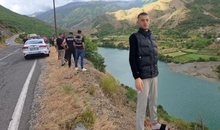
 Flash News
Flash News
The mystery of Renis Dobra's murder, the two main leads of the investigation are revealed
Rama's ultimatum: On Monday, all heads of administrative units must be dismissed
Fires in the country, 4 fires still active, what is the situation?
Rama targets Shkodra prosecutor again: Gjeli wrote philosophical essay with innocence of illegal construction
Wanted for theft, 26-year-old arrested in Durrës
SP Resolution on Corruption, BIRN: Uncertainty over the institutions and laws that will be subject to reform
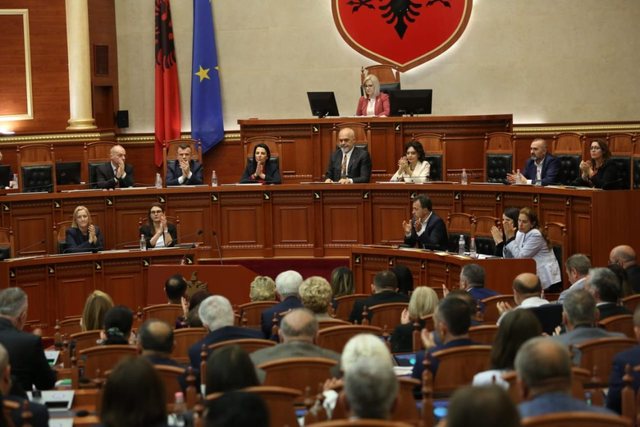
The resolution was approved with 76 votes in favor and 2 against by opposition MPs Agron Shehaj and Dashnor Sula.
The largest opposition group, known as "Re-establishment" did not participate in the vote with the argument that it could not undertake anti-corruption initiatives with a corrupt government, but left unclear the participation in the commission that will be established on the basis of resolution.
The chairman of the democratic parliamentary group Gazment Bardhi announced at the beginning of the session the decision to abstain by not participating in the vote.
"We consider it unnecessary to adopt a Resolution to set the agenda or what we should do," he said, arguing that the opposition had always shown the will to fight corruption, while the government made propaganda with this.
"We firmly stand by the will to consider it a vital necessity for the future of the country to deepen the fight against corruption and the phenomenon of capillary impunity at all levels", he said, adding that "for this we have always been ready to play our role, we have done our duty and we will continue to do it with great dedication..."
Asked by BIRN if they will become part of the special commission that will be set up, Bardhi did not answer.
Even the leader of the official DP, Lulzim Basha, who controls a smaller group of deputies in the Assembly, said that he would not vote for this resolution, describing the initiative as an "electoral act" and a "dirty conspiracy against SPAK".
He said that "he will strongly denounce any attempt against justice, and in particular against SPAK, which is currently the main institution, if not the only one, that is managing to attack high government corruption".
MPs Shehaj and Sula who voted against alluded that this resolution tried to capture justice at a moment when justice was giving the first results of the anti-corruption war with investigations against high government officials.
"This is a preparation of the ground to attack justice" - said Shehaj, asking the deputies to vote against.
While Sula cast doubts on how the special commission would function and on the goals the majority had for its establishment.
"We are not a parliamentary republic, we are a prime ministerial republic and this is done by order of the prime minister", he said, calling the arguments of the socialists "demagoguery".
Entitled the resolution: "For the deepening of reforms for good governance, the rule of law and anti-corruption for Albania 2030 in the European Union", it was defended by the socialists as an instrument to involve the parliament in the reforms that must be undertaken for the European integration process.
Prime Minister Edi Rama described the anti-corruption fight as the leitmotif of his government and described the accusations that he is trying to control SPAK as fantasy.
"SPAK is the bitter medicine, if you drink it, you die and whoever drinks it once yes and once no, like the rest of you do, no, it has no chance to cleanse itself and move forward, but it only lasts his own agony and dissolves like you are dissolving in the 'alley of hope'" he told the opposition MPs, alluding to the leader of "Re-establishment", former Prime Minister Sali Berisha, who is under house arrest accused of corruption.
According to Rama, what is happening with the justice reform has changed the wheel of history since 1912 and for this is the credit of the socialist majority.
According to the text of the resolution, the aim is for the Assembly to increase its supervisory and accountability role towards the government, independent institutions and law-enforcement executive agencies, however, uncertainty is created about the institutions and laws that will be subject to reform.
The initiative of the SP comes at a time when the reports of international organizations refer to data that there is an increase in the perception of corruption and a continuous decrease in the efficiency of anti-corruption mechanisms in the public sector. Reporter.al
Latest news

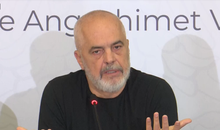
Rama's ultimatum: On Monday, all heads of administrative units must be dismissed
2025-07-11 11:05:59
Fires in the country, 4 fires still active, what is the situation?
2025-07-11 10:56:23
Government irony: Rama strips Dredha of power, then demands law and order
2025-07-11 10:49:10
German media: Vlora Airport 'kills' one of Europe's largest wetlands!
2025-07-11 10:37:46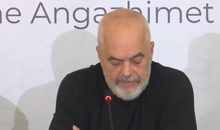

Amid the Alps in Theth, the law punishes even those who try to respect it
2025-07-11 10:14:16
Wanted for theft, 26-year-old arrested in Durrës
2025-07-11 10:03:29
After the dismissals, Rama gathers the mayors in Durrës
2025-07-11 09:42:29
Released on bail, Salianji appears before the Probation Service
2025-07-11 09:34:28

Haxhi Qamil Rama and the directors of the Municipalities!
2025-07-11 09:21:35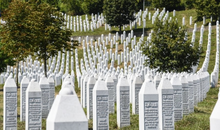
30 years since the Srebrenica massacre in Bosnia and Herzegovina
2025-07-11 09:10:52

From rhetoric to brandy, POLITICO: 9 things Nigel Farage can do in Albania
2025-07-11 08:53:35
Trump announces 35% tariffs on Canadian goods
2025-07-11 08:39:29
Foreign exchange, how much foreign currencies are sold and bought today
2025-07-11 08:24:25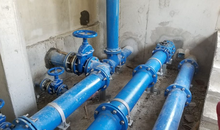

Horoscope, what do the stars have in store for you today?
2025-07-11 07:59:39
Sun and high temperatures, weather forecast
2025-07-11 07:41:09
Morning Post/ In 2 lines: What mattered yesterday in Albania
2025-07-11 07:20:14
Zhupa: In Theth, some Austrian strategic investors want the empty area
2025-07-10 22:57:08
Malltezi: SPAK admits, we are in a process that began with Balla's false report
2025-07-10 22:34:16

Si të çliroheni nga bllokimet emocionale me anë të ushtrimeve
2025-07-10 21:57:24

Lala: Veliaj wanted to return as mayor
2025-07-10 21:40:46

VIDEO/ Brawl in Bolivian parliament, deputies physically clash
2025-07-10 21:20:30


Albania experienced one of the longest heat waves of the last decade
2025-07-10 21:01:09

The Government approves new procedures for declaring residence in e-Albania
2025-07-10 20:39:32

Koka: Northerners will not forget Edi Rama's racist operation in Theth
2025-07-10 20:18:24
The 3 zodiac signs that will be most affected by the 'Full Moon' of July 10
2025-07-10 20:04:49
New director of the National Center of Cinematography appointed
2025-07-10 19:51:12
Korça/ 40-year-old man jumps from fifth floor balcony, in critical condition
2025-07-10 19:40:19
'Tired Woman'/ The Syndrome That Affects Thousands of Women Every Day
2025-07-10 19:34:02
Jane Birkin's original Hermès bag sells for $10 million
2025-07-10 19:26:22

Britain-Ukraine agreement signed for 5,000 Thales missiles
2025-07-10 19:00:25
Fire in Zvërnec, flames endanger two hotels
2025-07-10 18:57:19
Croatia restores compulsory military service
2025-07-10 18:39:01
Spahia: The great truth of the strong accusation of the residents of Theth
2025-07-10 18:35:07


The Supreme Court left him in prison, Meta addresses the 'Constitution'
2025-07-10 17:57:21
New punishment with 'new' regulations
2025-07-10 17:54:46
EU translator fired over fears for Zelenskyy's safety
2025-07-10 17:45:37
'You are a policeman, but not God, take my soul', protest for Agon Zejnullahu
2025-07-10 17:41:21


Video/ Rama repeats the scenario, kneels before Meloni again
2025-07-10 16:56:31
He set fire to a plot of olive trees, 50-year-old man arrested in Shijak
2025-07-10 16:46:19

Rubio: US and Russia have exchanged new ideas for Ukraine peace talks
2025-07-10 16:36:20
Death of 27-year-old, Lipjan Police Commander Resigns
2025-07-10 16:21:28
Video/ An apartment burns in Tirana near the New Bazaar
2025-07-10 16:09:36


Jensila lights up the internet with her birthday greetings to Ledri
2025-07-10 15:42:08
They're full of pesticides! List of 12 products we need to be careful of
2025-07-10 15:31:04

Worker falls from scaffolding in Shëngjin, urgently sent to Trauma
2025-07-10 15:11:03
Malltezi: Within one day they seized my accounts, properties and shares
2025-07-10 15:01:23
EU: Israel has agreed to more aid to Gaza
2025-07-10 14:55:19


Murder of Reni Dobra, 23-year-old's vehicle pulled from the water
2025-07-10 14:29:23
Trump's tariffs on Brazil raise coffee prices
2025-07-10 14:16:07
Ursula von der Leyen survives no-confidence vote
2025-07-10 14:04:27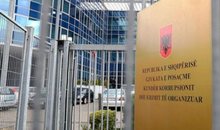


Fire in Lezha, flames near electrical substation
2025-07-10 13:32:24
Residents clash with police in Theth, a woman faints
2025-07-10 13:24:38
"Rama and Xanun"
2025-07-10 13:15:46

Zodiac signs most likely to get divorced in July 2025
2025-07-10 12:45:51
A scapegoat for an illegitimate Republic
2025-07-10 12:35:02
"He has devastated his own nation"/ Berisha: Rama imprisons his opponents!
2025-07-10 12:26:54

Albanian man injured with knife in Italy
2025-07-10 12:08:55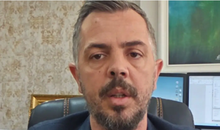
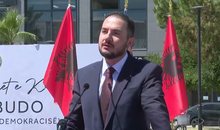
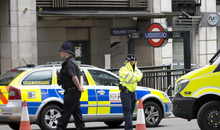



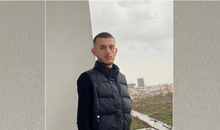
23-year-old in Mat drowned with rope, 4 suspects are being held
2025-07-10 10:58:53
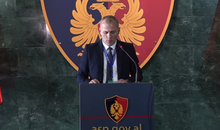
After the dismissals, the new director of the Shkodra Police is appointed
2025-07-10 10:30:10
BIRN: Rama's action for public spaces, a repeated spectacle
2025-07-10 10:29:11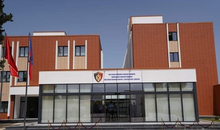
Action in Theth, Shkodra Police leaders dismissed
2025-07-10 10:16:28
Fatal accident on the Tirana-Durres highway
2025-07-10 10:01:58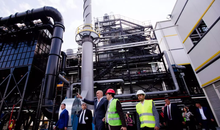
The incinerator does not exist, but the government continues to increase funds
2025-07-10 09:51:45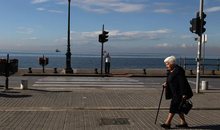
Albania is aging at a rapid pace! 30% of the population is over 60 years old
2025-07-10 09:46:23
End of an era, Modric says 'goodbye' to Real Madrid
2025-07-10 09:36:09
